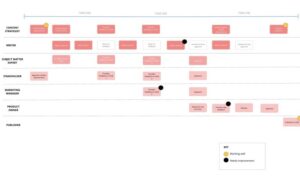Balanced Diet Tips are like the secret sauce to a healthy lifestyle, unlocking the potential for a vibrant and energetic you. Dive into this hip discussion filled with juicy insights and practical advice to level up your nutrition game.
From the importance of a balanced diet to common mistakes to avoid, this guide has everything you need to nourish your body and soul.
Importance of a Balanced Diet

Maintaining a balanced diet is crucial for overall health as it provides the necessary nutrients to support bodily functions and promote well-being. A balanced diet includes a variety of foods from different food groups in appropriate portions to ensure the body gets all the essential nutrients it needs.
Benefits of a Balanced Diet
- Improved Energy Levels: Consuming a balanced diet rich in fruits, vegetables, whole grains, lean proteins, and healthy fats can help boost energy levels and combat fatigue.
- Weight Management: A balanced diet can help prevent weight gain by providing the body with the right nutrients without excess calories, leading to a healthy weight.
- Disease Prevention: Eating a variety of nutrient-dense foods can lower the risk of chronic diseases such as heart disease, diabetes, and certain types of cancer.
Components of a Balanced Diet
Eating a balanced diet involves consuming a variety of foods from different food groups to ensure you get all the essential nutrients your body needs to function properly.
Essential Food Groups
- Carbohydrates: Carbs are the body’s main source of energy and should make up a significant portion of your diet. Opt for whole grains, fruits, and vegetables for a healthier choice.
- Proteins: Proteins are crucial for building and repairing tissues in the body. Include sources like lean meats, poultry, fish, nuts, and legumes in your meals.
- Fats: Healthy fats are essential for brain function and hormone production. Choose unsaturated fats like avocados, nuts, and olive oil over saturated fats.
- Vitamins and Minerals: These micronutrients are necessary for various bodily functions, including immune system support, bone health, and energy production. Eat a variety of fruits and vegetables to get a wide range of vitamins and minerals.
Role of Nutrients in a Balanced Diet
- Carbohydrates: Provide energy for daily activities and help regulate blood sugar levels.
- Proteins: Essential for building and repairing tissues, as well as supporting immune function.
- Fats: Aid in nutrient absorption and help maintain healthy skin and hair.
- Vitamins and Minerals: Support various bodily functions and help prevent deficiencies and related health issues.
Importance of Portion Control and Variety
- Portion Control: Monitoring portion sizes can help prevent overeating and maintain a healthy weight.
- Variety in Food Choices: Eating a diverse range of foods ensures you get a wide array of nutrients and prevents nutrient deficiencies.
Tips for Achieving a Balanced Diet

Eating a balanced diet is crucial for overall health and well-being. Here are some practical tips to help you achieve a balanced diet:
Meal Planning
Planning your meals in advance can help ensure that you are getting all the necessary nutrients in your diet. Here are some tips for effective meal planning:
- Make a weekly meal plan and create a shopping list based on your plan.
- Include a variety of foods from all food groups in your meals.
- Prep meals in advance to save time during busy days.
Reading Food Labels, Balanced Diet Tips
Understanding food labels can help you make healthier choices when grocery shopping. Here are some tips for reading food labels:
- Check the serving size and servings per container to monitor portion sizes.
- Look for hidden sugars and unhealthy fats in the ingredient list.
- Pay attention to the amount of sodium and added preservatives in packaged foods.
Incorporating Healthy Foods
Adding more fruits, vegetables, whole grains, and lean proteins to your meals can help you achieve a balanced diet. Here are some strategies to incorporate these foods into your daily meals:
- Include a serving of fruits or vegetables with every meal and snack.
- Choose whole grains like brown rice, quinoa, and whole wheat bread over refined grains.
- Opt for lean proteins such as chicken, fish, tofu, and legumes instead of red meat.
Common Mistakes to Avoid: Balanced Diet Tips
When trying to maintain a balanced diet, it’s essential to be aware of common pitfalls that can lead to an unbalanced intake of nutrients. By understanding the risks associated with consuming too much sugar, salt, or processed foods, you can make better choices for your overall health and well-being.
Risks of Consuming Too Much Sugar
Consuming excessive amounts of sugar can lead to various health issues, including weight gain, tooth decay, and an increased risk of chronic diseases like diabetes and heart disease. It’s important to limit your intake of sugary beverages, desserts, and snacks to maintain a balanced diet.
Risks of Consuming Too Much Salt
High sodium intake can contribute to high blood pressure, which is a risk factor for heart disease and stroke. Be mindful of the amount of salt added to your meals and opt for herbs and spices to enhance flavor instead. Avoid processed foods that are high in sodium.
Risks of Consuming Too Many Processed Foods
Processed foods are often high in unhealthy fats, added sugars, and sodium. These ingredients can lead to weight gain, inflammation, and an increased risk of chronic diseases. Try to prioritize whole, unprocessed foods like fruits, vegetables, whole grains, and lean proteins in your diet.





